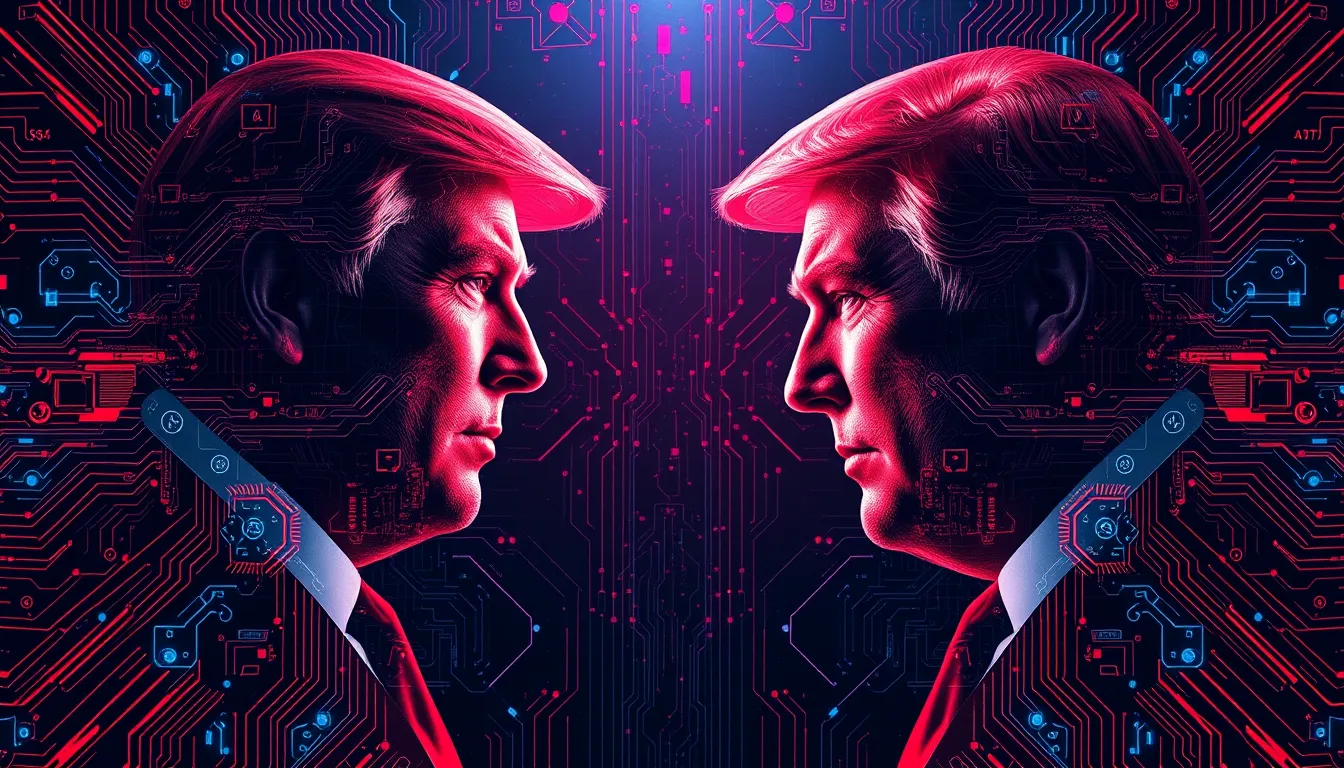Now Reading: AI Chip Export Controls: Navigating US Semiconductor Export Policy
-
01
AI Chip Export Controls: Navigating US Semiconductor Export Policy
AI Chip Export Controls: Navigating US Semiconductor Export Policy

AI Chip Export Controls: Navigating US Semiconductor Export Policy
The landscape of technology export regulation is undergoing significant transformation. In a rapidly evolving global market, the debate surrounding AI chip export controls has taken center stage. With an eye on maintaining global tech competitiveness and fostering innovation, policy makers are revisiting the US semiconductor export policy framework.
Introduction to Policy Shifts and AI Chip Export Controls
Recent developments hint at a comprehensive policy overhaul. The proposed adjustments to the existing framework are driven by both economic ambitions and national security concerns. Proponents argue that revisiting established regulations can unlock opportunities in AI chip manufacturing investment and boost international semiconductor trade. The renewed focus on AI chip export controls aims to balance the pressing need for innovation with the imperatives of safeguarding national interests.
The emphasis on AI chip export controls is clear. With this approach, the administration intends to recalibrate export policies to keep up with technological advancements while ensuring that sensitive technologies do not fall into the wrong hands. This change comes at a critical juncture when global supply chains are under immense pressure, and the geopolitical landscape demands more agile responses.
US Semiconductor Export Policy: A Closer Look
One significant aspect of this policy shift is the updated US semiconductor export policy. Designed to support domestic industry leadership and international trade, the revised policy framework originates from a need to overcome the constraints of previous regulations. Key points include:
- Encouraging increased investment in advanced chip manufacturing
- Allowing flexibility for tech companies to respond to international market dynamics
- Strengthening measures to protect critical technology from exposure to adversaries
These aspects aim to ensure that the US remains at the forefront of technological innovation while addressing the challenges posed by rapid advancements in semiconductor design and production. The debate often spotlights the intersection of technology policy and national security, providing a rich ground for discussion among experts and industry leaders alike.
Impact of Export Control Rollback on National Security
A pivotal element of the discussion centers on the impact of export control rollback on national security. Critics warn that loosening restrictions might inadvertently open avenues for sensitive technology transfers to rival nations. They argue that while enhanced competitiveness is achievable, risks associated with national security cannot be ignored. The focus on AI chip export controls here serves as a reminder of the fine line between fostering innovation and maintaining robust security measures.
To mitigate these risks, policy makers are exploring measures such as:
- Implementing stringent review processes for export licenses
- Increasing collaboration between government and private sectors
- Adjusting regulations to include periodic reassessment of risk factors
Such steps ensure that the intended deregulation does not equate to a weakening of national defense. For additional insights on US policy reforms, you can visit the official White House website at https://www.whitehouse.gov.
How Deregulation Affects International Semiconductor Trade
The process of deregulation also raises questions about how international semiconductor trade will evolve. By reducing bureaucratic hurdles, the government aims to stimulate economic activity while maintaining competitive practices in markets around the world. However, the transition must be managed carefully to not disrupt established trade norms.
Key considerations include:
- Maintaining compliance with international trade agreements
- Ensuring fair competition among domestic and global players
- Balancing the economic benefits of deregulation with potential geopolitical risks
The recalibration of export policy, including a deliberate look into AI chip export controls, is seen by many stakeholders as a necessary step to foster both innovation and market stability.
Balancing Innovation and Security in Tech Exports
Another critical dimension in this evolving scenario is the need to balance innovation with robust security safeguards. While the loosening of export regimes is expected to propel technological advancements across various sectors, the policy shift also necessitates an unwavering commitment to national security. By focusing on AI chip export controls, government and industry leaders aim to nurture an ecosystem where regulatory relaxation does not compromise security.
Innovation-driven initiatives often highlight investment in new technologies, yet a cautious approach is vital. This is why debates have intensified around the policy shift in AI chip development, ensuring that every deregulation measure is paired with mechanisms to mitigate risks. For more industry insights and trade updates, refer to the Semiconductor Industry Association at https://www.semiconductors.org.
Conclusion
In conclusion, the conversation around AI chip export controls encapsulates the broader dynamics of US semiconductor export policy amidst a challenging global landscape. As the debate continues, it is evident that the proposed policy shift is more than just a deregulation strategy; it is a carefully balanced act aimed at bolstering domestic innovation while maintaining national security. Stakeholders from various sectors remain engaged in discussions to ensure that the recalibrated framework delivers growth, competitiveness, and resilience on a global scale.
By navigating the complexities of regulatory reform thoughtfully, policymakers and industry leaders strive to leverage the benefits of relaxed export controls while addressing the critical concerns of national security. This ongoing evolution of US export policy stands as a testament to the intricate dance between fostering innovation and protecting national interests. The balanced approach in handling AI chip export controls continues to be a topic of significant importance as it shapes the future of technology and international trade.

























